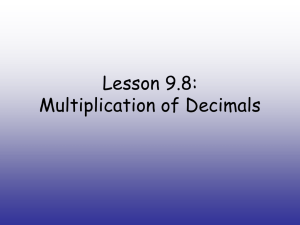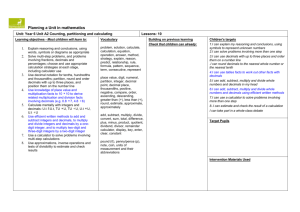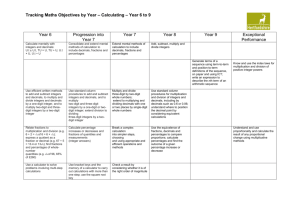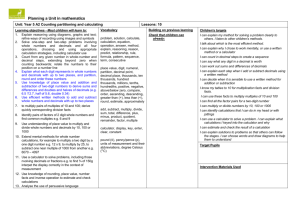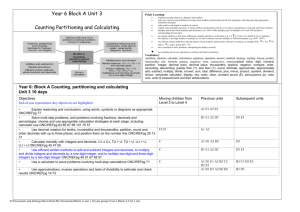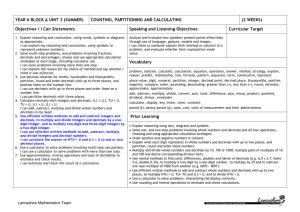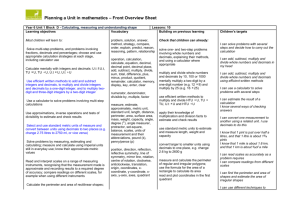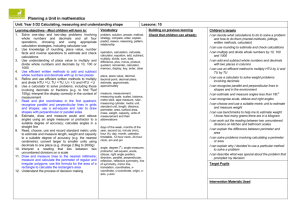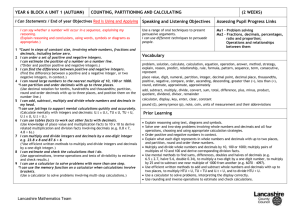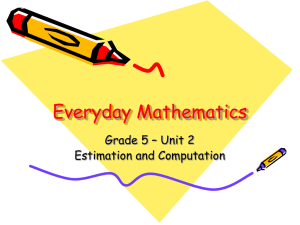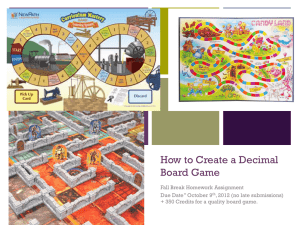Maths Workshop
advertisement
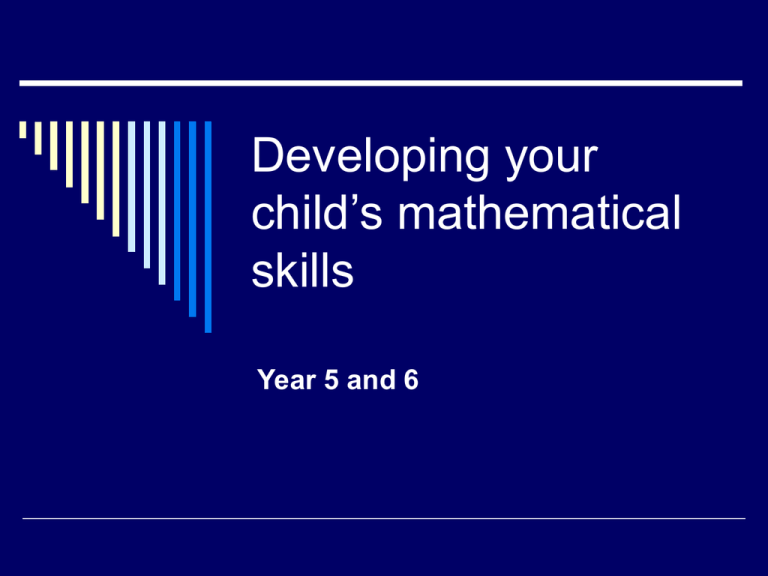
Developing your child’s mathematical skills Year 5 and 6 Addition At the end of Year 5, your child should be able to use efficient written methods to add whole numbers and decimals with up to two places At the end of Year 6, your child should be able to use efficient written methods to add whole numbers and decimals with up to two places in a range of contexts Methods of addition An empty number line Partitioning Column – most significant digit first least significant digit first carrying Subtraction At the end of Year 5, your child should be able to use efficient written methods to subtract whole numbers and decimals with up to two places At the end of Year 6, your child should be able to use efficient written methods to subtract whole numbers and decimals with up to two places in a range of contexts Methods of subtraction Empty number line Decomposition Column Have a go! add-sub.rtf Multiplication At the end of Year 5, your child should be able to refine and use efficient written methods to multiply HTU ×U, TU ×TU, and U.t ×U At the end of Year 6, your child should be able to use efficient written methods to multiply integers and decimals by a one-digit integer, and to multiply two-digit and three-digit integers by a two-digit integer Methods of multiplication Times tables & related facts Partitioning Grid Method Have a go! times.rtf Division At the end of Year 5, your child should be able to refine and use efficient written methods to divide HTU ÷ U, TU ÷ U At the end of Year 6, your child should be able to use efficient written methods to divide integers and decimals by a one (and two) digit integer Methods of division Inverse of times tables and related facts Partitioning Short division Chunking Have a go! div.rtf How to help your child Develop their mental calculation skills by practising complements to 100, times tables, related division facts Do a ‘wrong’ calculation – ask them to figure out what has happened Involve them in ‘real life’ problems e.g. working out the cost of a meal if you are eating out
